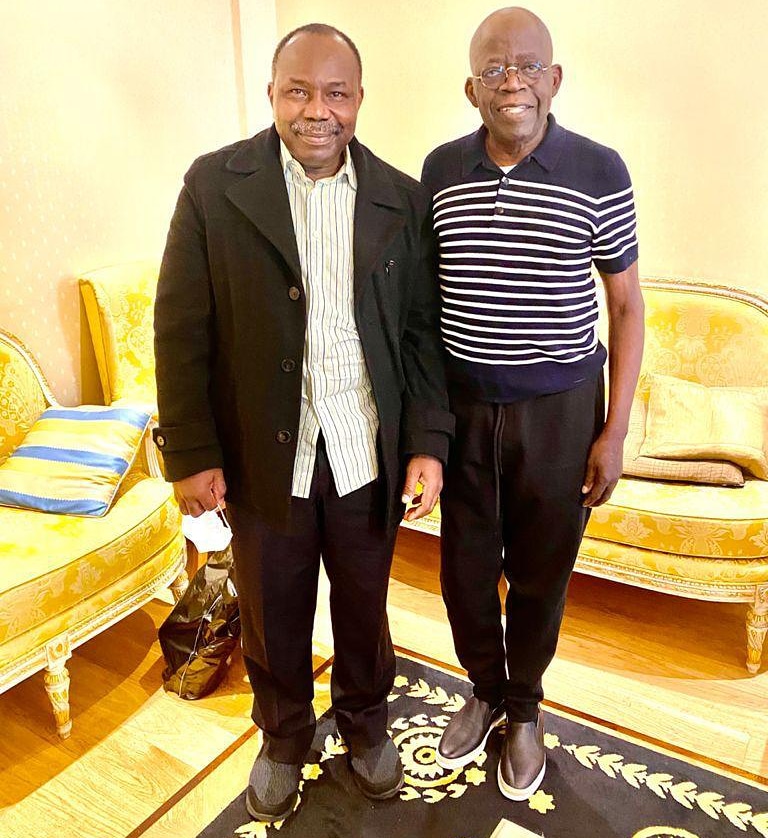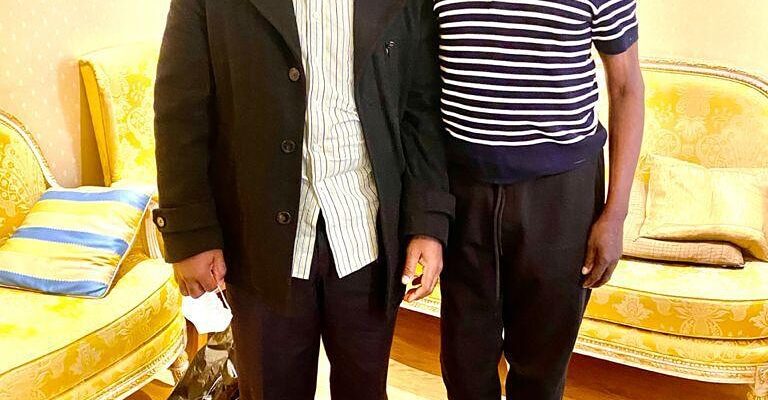
The Yoruba culture is one that is very deep in fostering values of respect, love and empathy for one another, even in a state of utter disagreement. This might be the same in many other cultures in Africa, which might make it a continental orientation, but my birth, growth and socialization being a process providentially programmed by destiny to be among the noble people of Yoruba descent, have made me deeply appreciative of these values of Omoluabi. Our parents, by patriarchal and matriarchal decrees, instilled in our memory and thinking that the highest virtues and injunctions imposed by the scriptures can find no better practical expression and living than in the archetypal omoluabi.
The Wikipedia online dictionary describes ‘Omoluabi’ as “a philosophical and cultural concept that’s native to the Yoruba people. It’s used to describe a person of good character. The omoluabi concept signifies courage, hard work, humility and respect. An omoluabi is a person of honour who believes in hard work, respects the rights of others, and gives to the community in deeds and in action. Above all, an omoluabi is a person of integrity.”
In all situations, whether of peace or conflict, an Omoluabi must not be found wanting in nobility of heart and character. The above cultural review has become quite imperative due to my recent visit to Asiwaju Bola Ahmed Tinubu, former governor of Lagos State, under whom I had the honour of serving as a commissioner for eight good years. This incident would not have been spectacular as to warrant a dedication in this column, if not for the reactions of many people to the visit as my picture with Asiwaju went viral. The said visit to Asiwaju Tinubu, who was receiving treatment and recuperating in London, generated a lot of shock in the system, so much so that I became shocked myself.
My shock arose out of the nature of human beings and their perception of life. The way and manner it elicited reactions is rather befuddling. The amount and nature of responses are indicative of the perception of many people about my relationship with Asiwaju. While, to some, it was a healthy development, to others, it constituted a headache. To the last category, it simply denotes confusion.
With regard to the former, their excitement either arose out of genuine love for peace or it was a good opportunity to tap goodies from the ‘new’ relationship. To the other category, it is bad news, as they are not just ordinarily mischief-makers in the land, they are active perpetrators of all that is evil. They feed on crisis while remaining political scavengers. They are people without any alternative contact address than politics. Hence, they can go to any length in perpetuating themselves in the corridors of power and their pathological dependence on the goodwill of Asiwaju has been greatly unruffled by such a visit from my humble self. To these, the visit is doom, and rather than applauding the step, they would promote rancour for their selfish ends.
That is why I asked whether the development enlivened them or gave them bellyache or diarrhea. The third category of people are simply bewildered and yet to decode the implications. The truth of the matter, however, is that all the classes of people presumed a sort of hostility between Asiwaju and I. This is far from the truth, as I have consistently said that there is no enmity between Asiwaju and I and there can never be one with him or between any other soul and I. It is absolutely not in my character nor is it in my culture or religion to bear grudges against people, which I cannot express in words or action. If you offend me and there is a need to correct you, I will immediately take action by voicing out my disagreement or take you to court, if I consider the need for redress. On no basis would I habour grievances against you without letting you know my innermost feelings. This is consistent with my religious injunction as a Muslim whose respect for the hadith of the Holy Prophet about correcting errors instantly is quite important.
What obtains in my relationship with Asiwaju or any other political leader with whom I disagree is simply institutional disagreement, which is normal in the lives of people. We all have our styles and approaches to issues, hence, people are bound to disagree on ideas and methodologies. A gleaming example is the issue of internal democracy within political parties to which I hold fastidiously. It is my conviction as to how political parties should be run against which I cannot subscribe to something contrary. My approach in circumstances of such disagreement, where it becomes irreconcilable, is to always toe my lane and maintain my stand. This, in my view, is no dispute. It will be observed, about three years ago, when I realised that the ways of the ruling party did not tally with mine, I honourably bowed out of the party. That implies not that I am in dispute with leadership or members of the party. Till date, I still wine and dine with those close members who are my friends.
The Caretaker Committee chairman of the All Progressives Congress (APC), Governor Mai Mala Buni, happens to be a close ally of mine. I recently drew out my pen in a critical review of his leadership of the party following the decision of the Supreme Court in the case of Jegede v. Akeredolu. My friendship with Buni, who doubles up as the governor of Yobe State, cannot be a restraint on me in speaking out the truth to the leaders of the country. That is notwithstanding that the bitter end of my pen may be devoted to such topics and the principal character may be a close friend.
My vow to Allah is to bear witness to the truth, even if it is against my mother. My disagreement with the leadership of the APC on the need to instill internal democracy openly began in 2014 and since then I have remained unwavering. Notwithstanding what many perceived as hostility between Asiwaju and I, when my mother died in 2019, Asiwaju was among the most prominent Nigerians who joined me in performing the last ritual of interment for my mother. That is the way of a typical Omoluabi. A Yoruba aphorism says “Bi a ba n ja, bii ki a ku ko,” which literally means “even when we disagree, we do not wish others dead.”
Thus, when I was in London last week to attend to sundry issues and I learnt that the Jagaba was recuperating in London, I had no choice than to pay a visit to him, remembering that I had shared many moments of love and vivacity, notwithstanding the current prevailing atmosphere of disagreement on how to run a party. When Asiwaju came for my mother’s burial, it was certain that those elements who profited from what they perceived as hostility between us must have seen a horror film playing out. Their marabouts must have made more income from their efforts at suspending the impending “doom,” the fright of which had been pursuing them into all sorts of fetish indulgence.
The way of omoluabi is to wish all well and pray for good health for the ailing, strive for good relationship with others and promote unity and love in the land of the living.
He who pelts another with pebbles asks for rocks in return. The Yoruba say “Eda ti o ba gbin eebu ika, bo pe, boya, omo e a je ni’be (He who plants the seeds of evil, shall reap the harvest for his offspring to consume).” It is in this light that the virtues of omoluabi as embodied in good character of love, respect, integrity, honesty, empathy, etcetera, are considered inalienable characteristics of a good person. Promotion of strife and sowing discord are two agents of the devil that an Omoluabi should not be associated with.
Certainly, the visit is a nightmare to those who perceived hostility between Asiwaju and I and wished that such should be a lifetime affair between us. That I speak my mind all the time, which some may see as not compatible with their own politics of selfishness, is not that I hold anyone who disagrees with me to be an enemy. It is certain that my circle of friends is not defined by political affiliation, religious or ethnic divides.
As some leaders of the APC are my good friends today, in the same way some leaders of the Peoples Democratic Party (PDP) are my bosom friends, my disagreement with their style of governance notwithstanding.
I have a prominent example of the governor of Sokoto State, Aminu Tambuwal, who is my very good friend and his membership of PDP cannot be a wedge to define our relationship. As said above, people of peaceful orientation were happy with my visit to Asiwaju in London, while the harbingers of mischief and enmity developed palpitations due to the unfolding news. Politics should not be a road leading to enmity, as we are bound to disagree.
The only interest for me that is permanent is good governance for the people of Nigeria as I have no personal interest to foster. We tower over and above material things to determine our loyalty in politics. In all these, the point being made, as I did when I stepped aside from my office as the national legal adviser of APC and a member of the Constitution Review Committee of Nigeria, is that we must model our mentorship to the younger ones.
That is what I depict. For those who think I have animosity towards Asiwaju Bola Tinubu and, therefore, found this display of love and respect for him as a source of worry, I express my heartfelt sympathy and hope they find an alternative source of income other than politics. It is hunger and insecurity of income that often make an adult inherit the battle of another against someone who never offended him.
My sympathy in the interim can only last as long as they learn lessons in the making of an Omoluabi, otherwise, the sympathy I nurse for them may become condolence, if they die of heartache.
Let me conclude with this line from one of Fela’s songs: Omi o lota o! Water, e no get enemy!

Comments